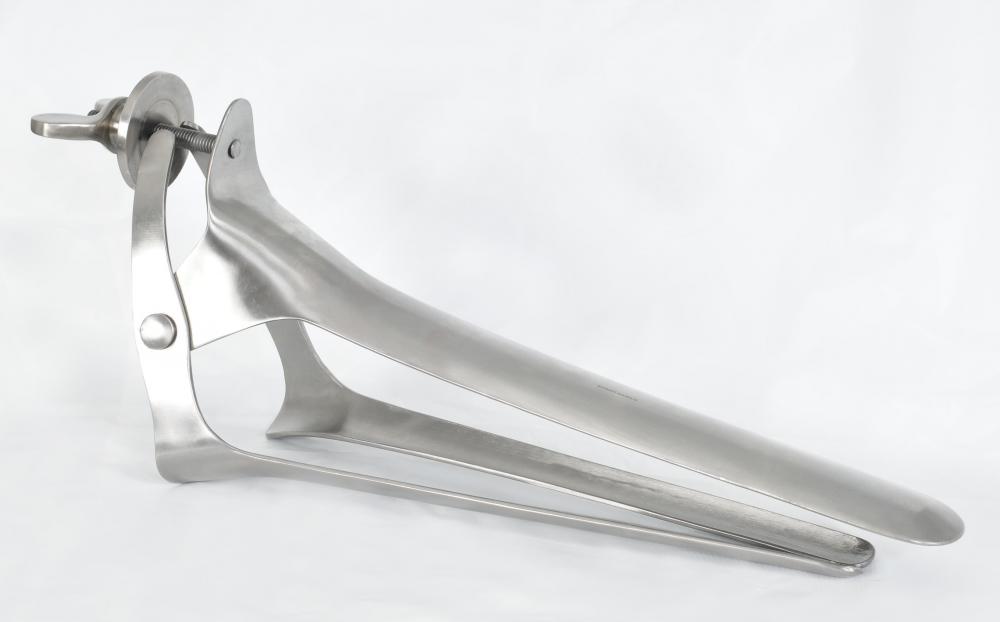At WiseGEEK, we're committed to delivering accurate, trustworthy information. Our expert-authored content is rigorously fact-checked and sourced from credible authorities. Discover how we uphold the highest standards in providing you with reliable knowledge.
Why do I Need an Annual Exam?
Many women are familiar with the concept of an annual exam, and they usually dread it because of the associated discomfort. However, it is extremely important to have an annual exam, whether or not a woman is sexually active. In addition to being an excellent place to bring up specific concerns like family planning and Sexually Transmitted Infection (STI) prevention, an annual exam also screens for breast and gynecological cancers. Although an annual exam may seem onerous, it's an important part of caring for your body.
Doctors generally recommend that women receive annual exams from their teens until the end of life. It is an excellent idea to shop around for a clinician. You should feel very comfortable with your doctor, so seek out a doctor who answers your questions and makes you feel at home. You may also want to discuss your clinician's personal approach to medicine, to see if you have a similar philosophy. Once you find a good clinician, stick with him or her.

During an annual exam, the doctor will assess your annual health, and she or he will also screen for specific health problems. The exam typically includes a breast exam to check for lumps which may require action, and a pelvic exam to check on your general gynecological health. When performed well, a pelvic exam should not be painful, although it may be uncomfortable. During the pelvic exam, the doctor will perform a Pap smear, sampling cells from your cervix to test for cancer. You may also request STI or pregnancy screening during your annual exam, if these are issues for you.

A good clinician will also discuss your diet, exercise, and general lifestyle habits. If he or she thinks that you may be at risk for STIs, additional counseling and advice may be offered. He or she may also offer counseling in family planning if you are interested in spacing children or preventing pregnancy. This counseling may include advice on various birth control methods, and a prescription for a birth control method, if applicable.

Gynecological cancers can be extremely serious and even life-threatening. By receiving an annual exam, you can be certain that these cancers will be caught early, if they appear. This makes treatment much easier, and it greatly improves your prognosis. Early detection of STIs is also important, since it ensures prompt treatment and reduces the risk of transmission to others. Although you certainly don't need to get wildly excited about your annual exam, it may help to remember that momentary discomfort will be well worth it if you catch a serious medical condition early.
AS FEATURED ON:
AS FEATURED ON:
















Discussion Comments
@turquoise-- I'm not too sure about cervical cancer but I know that breast cancer can happen to women of any age.
Of course if you have women in your family who have had cervical, breast or other type of cancer in the past, you are at greater risk. And cancer isn't the only illness that a gynecological exam can help diagnose. There are others like endometriosis, for example.
I don't enjoy the annual exam either but I'd rather be safe than sorry so I go through with it.
@turquoise-- I don't know about the different factors that increase the risk of cervical cancer. But I think you should start getting your annual exam. There is no rule that women who are not sexually active will not develop various issues. Like the article said, early diagnosis makes all the difference for serious problems like cancer.
Are you worried about experiencing pain or do you have anxiety about the exam? There really isn't anything to worry about but if fear and anxiety are preventing you from getting your annual exam, you should at least mention this to your doctor. Gynecologists know how difficult it is for some women to have this exam and they are very patient and supporting for this reason.
I'm twenty five years old and I've never been examined by a gynecologist. I'm not sexually active so I don't think it's necessary. The risk for cervical cancer is greater in women who are sexually active isn't it?
Post your comments